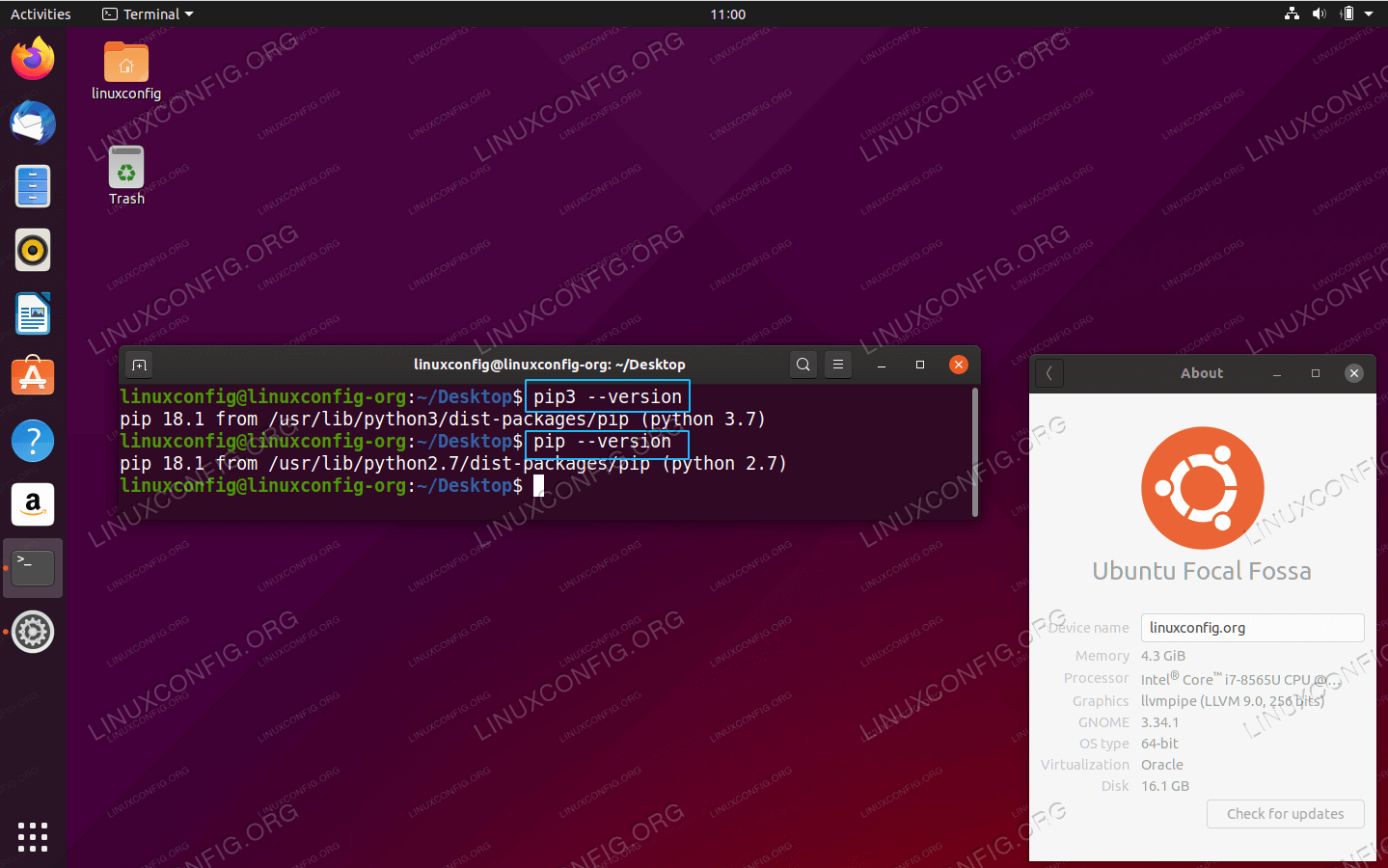
- #INSTALL PYTHON 2.7 UBUNTU 16.04 SERVER HOW TO#
- #INSTALL PYTHON 2.7 UBUNTU 16.04 SERVER INSTALL#
- #INSTALL PYTHON 2.7 UBUNTU 16.04 SERVER SOFTWARE#
Managed node’s username = raj Create Ansible InventoryĮdit (or create) /etc/ansible/hosts file. Here, for this demo, I have used passwordless communication between ansible controlling node and the managed nodes.
#INSTALL PYTHON 2.7 UBUNTU 16.04 SERVER HOW TO#
READ: How To Setup SSH Passwordless Login on CentOS 7 / RHEL 7

When it comes to ssh authentication, by default, it uses ssh keys (passwordless authentication) to authenticate with the remote machine. SSH key authentication (Passwordless Authentication)

Ansible supports both passwordless and password authentication to execute commands on managed nodes.
#INSTALL PYTHON 2.7 UBUNTU 16.04 SERVER INSTALL#
yum install -y libselinux-python SSH AuthenticationĪs said earlier, Ansible uses native OpenSSH for remote communication. If you have SELinux enabled on managed nodes, you will have to install below package on nodes before using any copy/file/template related functions in Ansible. Sudo apt-get install -y python SELinux (CentOS / RHEL / Fedora) Python version = 2.7.5 (default, Jul 13 2018, 13:06:57) Ĭlient machines should at least have Python 2 (version 2.6 or later) or Python 3 (version 3.5 or later). ansible -versionĬonfigured module search path = Īnsible python module location = /usr/lib/python2.7/site-packages/ansible Once Ansible is installed, verify the version of Ansible by executing below command. Sudo apt-key adv -keyserver -recv-keys 93C4A3FD7BB9C367Įcho "deb trusty main" | sudo tee -a /etc/apt//ansible.list Sudo apt-add-repository ppa:ansible/ansible Sudo apt-get install software-properties-common

Subscription-manager repos -enable rhel-7-server-ansible-2.6-rpms To install Ansible, we will have to Enable EPEL repository on CentOS 7 / RHEL 7. Install Ansible on CentOS 7 / RHEL 7 / Ubuntu 18.04 / 16.04 & Debian 9 Setup Controlling Machine If you have SELinux enabled on remote nodes, you will have to install libselinux-python package on nodes before using any copy/file/template related functions in Ansible Environment Hostname Client NodesĬlient machines should at least have Python 2 (version 2.6 or later) or Python 3 (version 3.5 or later) Supports Red Hat, Debian, CentOS, OS X, any of the BSDs. You can run Ansible on any machine which is having Python 2.6 or 2.7 installed (Windows isn’t supported for the control machine). Modules are nothing but a script written in Python, Perl, Ruby, bash, etc. Wherein Ansible, the nodes are managed by controlling machine (Ansible server) over SSH, so there won’t be any agent running on node machines.Īnsible deploys modules to nodes over SSH, and these modules are temporarily stored in the nodes and communicate with the Ansible server through a JSON protocol.
#INSTALL PYTHON 2.7 UBUNTU 16.04 SERVER SOFTWARE#
If you take other configuration management tools like puppet, chef, and CFEngine, server software is installed on one machine, and client machines are managed through the agent. This guide will help you to install Ansible on CentOS 7 / Ubuntu 18.04 / Ubuntu 16.04 / Debian 9. But, in some cases, where you may require to execute multiple commands for deployment. Ansible manages nodes over SSH or PowerShell and python to be installed on them.Īnsible helps you to perform configuration, management, and deployment of software on 100s of nodes using SSH, the entire operation can be executed by one single command ansible.

Ansible is a free configuration management tool, and it supports managing the configurations of Unix-like and Microsoft Windows systems.


 0 kommentar(er)
0 kommentar(er)
